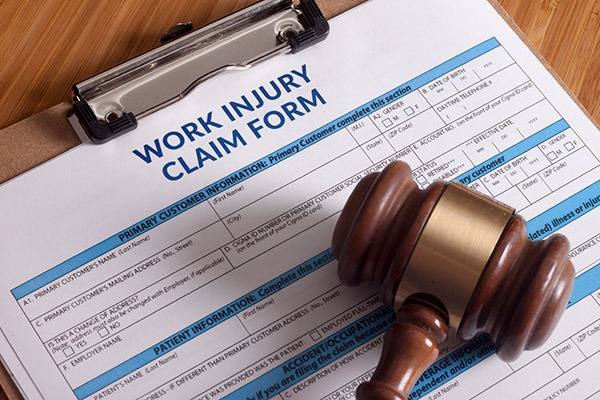We Have Decades Of Experience
Risk Free & Confidential Consultation
A+ Rating With The Better Business Bureau
If you have recently been injured in a workplace accident or become ill because of your job, you may be dealing with the California workers’ compensation system for the first time. Many people who have an urgent need for workers’ compensation benefits after a workplace accident encounter a bureaucratic system they know very little about.
Unfortunately, a lack of understanding of the workers’ comp system can cost you money that you need if you are out of work because of an injury or illness. Certain common mistakes can cause your workers’ comp claims to be denied, delayed, or benefits you have already been awarded may be halted.
Meechan Rosenthal Karpilow, P.C. helps workers obtain the workers’ compensation benefits they deserve under the law. If you have concerns about your workers’ comp claim or you have been denied benefits, contact us for assistance today.
Your Employers’ Advantage in Workers’ Compensation Claims

Workers’ compensation is an insurance program administered by the State of California, which employers in the state must take part in. Workers’ comp is designed to protect both employers and their employees.
By law, employers must carry workers’ compensation insurance, even when they have only one employee. Most obtain coverage through private insurance companies, though some self-insure. Employees are not charged for workers’ compensation coverage. This type of insurance is simply part of the cost of doing business.
In exchange for the guarantee of workers’ compensation benefits for workers who suffer occupational injuries or illness, the law protects employers from liability for negligence or workplace conditions that cause workers to become injured or ill. The employer must pay benefits (through insurance coverage) to a worker who is injured or becomes ill. In exchange for these benefits, the employee cannot sue the employer, regardless of fault or the extent of harm.
Workers’ compensation pays for all of the employee’s medical expenses connected to the qualifying injury or illness, and a portion of the injured worker’s salary or wages while you are unable to work. If an employee is judged to be permanently disabled, they may receive either a lump sum settlement or payments for a specified amount of time.
Families who have lost a loved one in a work accident or to an occupational illness can also receive monetary benefits according to a benefits schedule defined by law.
Request a free consultation for your case
Workers’ Compensation Coverage for California Employees
Because the workers’ compensation system must address virtually every possible employment situation in the state of California, its rules must be precise yet cover numerous variables. It is a complicated system with many regulations. This can make it difficult to navigate, especially if you have never dealt with it before and if you are doing it while recovering from an injury.
Workers’ compensation is a costly program. For instance, temporary total disability (TTD) and permanent total disability (PTD) wage-loss payments are based on the State Average Weekly Wage (SAWW).

Like other insurance programs, policyholders’ premiums tend to rise if the insurer has to pay more in claims, particularly after multiple or large payouts. This creates an incentive for employers and their insurers to try to hold down workers’ compensation payments.
If employers utilize work safety programs to decrease accidents as a means of keeping costs down, that’s a good thing. But some employers and insurers find it easier to deny or minimize claims when they arise. Because insurance companies and larger employers have much more experience with the workers’ compensation program than most employees, they have the upper hand.
You’ll find several requirements placed upon you after a workplace injury to obtain workers’ compensation. For example, you must report your injury or illness to your employer immediately or you could lose eligibility for workers’ comp benefits. This requires completing a DWC-1 (Employee’s Claim for Workers’ Compensation Benefits) form, which should be available from your employer or online.
You must seek medical treatment for your injury or illness within 24 hours of filing a claim. If you have previously filed a Personal Physician Pre-Designation form with your employer, then you may see that doctor. If you have not, you must ask your employer to send you to a doctor of their choice.
Request a free consultation
Fill Out The Form Below To Receive A Free & Confidential Initial Consultation





